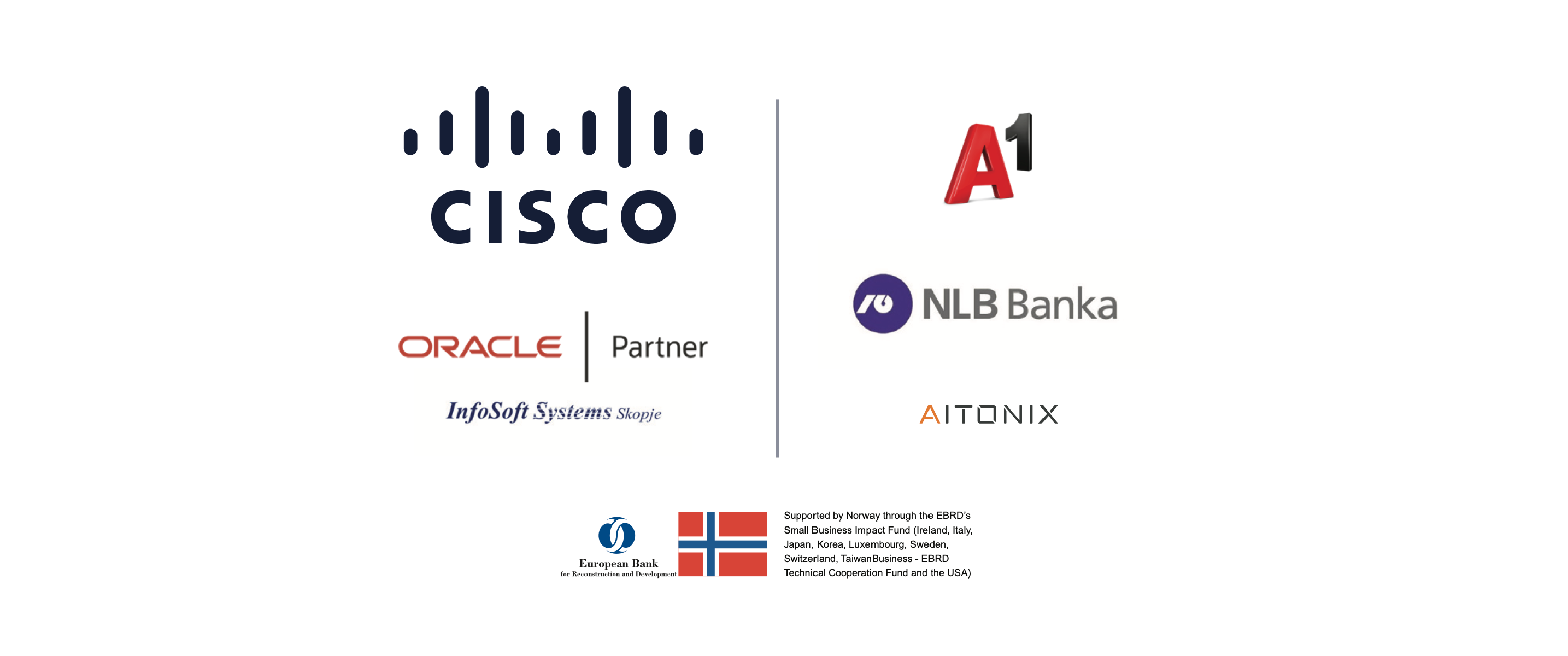CONFERENCE OVERVIEW
Two-day discussions about Cyber Security Landscape, Policies, Funding, the Future & More!
Building a digital society is no longer a choice but an indispensable social organizing and functioning model.
In a country with significant digital divide between use and quality of use the Covid -19 pandemic showed the importance, and the opportunities digitalization brings to our way of living and working. It also showed the necessity of higher pace of adoption of digital innovations for both businesses and the public sector in order to overcome this gap.
Yet, as we have recently been witnessing, even great challenges and risks which should be anticipated and addressed lie ahead.
The AmCham Digitalization Conference aims to emphasize a topics most crucial for North Macedonia at this point: “Building Cyber Resilient Organizations”.
The digital journey of any country is a pat of joint efforts, commitment but most of all open minds needed to ensure successful and sustainable digital transformation.
200+
PARTICIPANTS
30+
10+
SESSIONS
SUPPORTED BY:

MEET THE KEYNOTE SPEAKERS

EMILY HARDING
Senior Fellow and Deputy Director CSIS International Security Program, Washington DC, US
Emily Harding is deputy director and senior fellow with the International Security Program at the Center for Strategic and International Studies (CSIS). She joined CSIS from the Senate Select Committee on Intelligence (SSCI), where she was deputy staff director. In her nearly 20 years of government service, she has served in a series of high-profile national security positions at critical moments. She began her career as a leadership analyst at the CIA. She oversaw the activities of intelligence agencies and led SSCI staff in drafting legislation, conducting oversight of the intelligence community, and developing their expertise in intelligence community matters. Harding holds a master’s degree in public policy from Harvard University’s Kennedy School of Government and a bachelor’s degree in foreign affairs from the University of Virginia.

BRANKO PRIMETICA
Partner at Cedars International
With over 25 years of executive-level experience in management and IT consulting, I have led operations, business development, marketing, and an Innovation Lab across diverse mission areas. My global consulting spans private and public sectors, advising prestigious forums like the United States Congress and APEC. Key achievements include building a startup to 350+ employees, enabling a government-wide cybersecurity program, and winning $600 million in contracts. A strategic thinker and innovator, I excel in digital transformation, cybersecurity, and emerging technologies. Currently pursuing a Global Executive Leadership Program at Yale University, I blend business acumen with technical expertise for transformative results.

SENAD ARUC
Founder & CEO @ imperum.io
Founder & CEO of imperum.io, a cutting-edge startup revolutionizing the SOC landscape. Seasoned cybersecurity professional with 25+ years of expertise in Incident Management, CSOC architecture, and MDR/MSSP offerings. A passionate advocate for EDR, DFIR, XDR solutions, and SOAR platforms. Specialized in malware analysis, threat intelligence, anti-fraud, and anti-phishing. Renowned researcher and conference speaker on infiltrating botnets. Fluent in 6 languages with a leadership focus on technical design and troubleshooting advanced threat solutions. Previously held key roles, including Co-founder and Chief Evangelist, Lead Technical Solutions Architect, Principal Advisor for Advanced Cyber Threats, and Senior Lead at Cyber Security Operations.
SPEAKERS
TOPICS
Where does North Macedonia stand at this point? What are the key challenges, and how will they be addressed? What is the level of harmonization with EU legislation, emphasizing the new Law on the security of networks and information systems and digital transformation. This collaborative overview will capture the diverse dimensions of ongoing initiatives, legislative advancements, and strategic pathways.
While we often discuss the significance of cyber, other policies, and talent, we have yet to clearly define the essential components needed for a comprehensive cyber program, including resources and tools. Establishing such a program ensures a proactive and holistic approach to cybersecurity, reducing overall cyber risk exposure.
How can organizations ensure a high-quality workforce that meets the future demands of the cybersecurity world? Additionally, how can they effectively reduce cybersecurity risks with limited resources? This overview provides best practices and recommendations for cybersecurity talent development.
Why is budgeting significant in cybersecurity for both public and corporate sectors? Gain insight into the importance of strategic financial planning in the cybersecurity landscape by exploring the multifaceted aspects of budgeting and resource allocation. Recognize these considerations as foundational steps in structuring cybersecurity planning and budgeting efforts.
As we underscore the critical role of cybersecurity in protecting individuals, organizations, and nations from cyber threats, it is essential to offer a holistic perspective on the future state of cybersecurity, encompassing trends, challenges, innovations, and regulatory aspects.
Get familiar with the EBRD’s financial instruments and advisory support available to companies in the private sector in North Macedonia regarding cyber-resilience.



